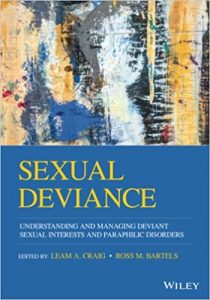by rbartels | Jun 30, 2022 | Publications
Amanda Roberts, along with many other researchers, have published a paper entitled ‘Gambling disorder in the UK: key research priorities and the urgent need for independent research funding‘ in The Lancet Psychiatry. Summary of the paper is below:
Summary
Gambling in the modern era is pervasive owing to the variety of gambling opportunities available, including those that use technology (eg, online applications on smartphones). Although many people gamble recreationally without undue negative effects, a sizeable subset of individuals develop disordered gambling, which is associated with marked functional impairment including other mental health problems, relationship problems, bankruptcy, suicidality, and criminality. The National UK Research Network for Behavioural Addictions (NUK-BA) was established to promote understanding of, research into, and treatments for behavioural addictions including gambling disorder, which is the only formally recognised behavioural addiction. In this Health Policy paper, we outline the status of research and treatment for disordered gambling in the UK (including funding issues) and key research that should be conducted to establish the magnitude of the problem, vulnerability and resilience factors, the underlying neurobiology, long-term consequences, and treatment opportunities. In particular, we emphasise the need to: (1) conduct independent longitudinal research into the prevalence of disordered gambling (including gambling disorder and at-risk gambling), and gambling harms, including in vulnerable and minoritised groups; (2) select and refine the most suitable pragmatic measurement tools; (3) identify predictors (eg, vulnerability and resilience markers) of disordered gambling in people who gamble recreationally, including in vulnerable and minoritised groups; (4) conduct randomised controlled trials on psychological interventions and pharmacotherapy for gambling disorder; (5) improve understanding of the neurobiological basis of gambling disorder, including impulsivity and compulsivity, genetics, and biomarkers; and (6) develop clinical guidelines based on the best contemporary research evidence to guide effective clinical interventions. We also highlight the need to consider what can be learnt from approaches towards mitigating gambling-related harm in other countries.
by rbartels | Jun 30, 2022 | Publications
Hannah and Ross have contributed chapters to a new book entitled ‘Challenges in the Management of People Convicted of a Sexual Offence: A Way Forward’ (Uzieblo et al., 2022) that was published on 21st December, 2021.
Hannah’s chapter is entitled “Working with Individuals who have accessed Child Sexual Exploitation Material: Assessment Strategies and Future Developments”
Ross’ chapter is entitled “Understanding Sexual Fantasising: Implications for Forensic Practice and Research”.
There will be an online book launch in January, at which Ross will give a short presentation about his chapter.
by rbartels | Jun 30, 2022 | Publications


 In Dec 2021, Amanda Roberts, Rachael Mason, and Todd Hogue (with other colleagues) published a new systematic review in the ‘Drug and Alcohol Dependence’ journal, entitled “Alcohol and other substance use during the COVID-19 pandemic: A systematic review”
In Dec 2021, Amanda Roberts, Rachael Mason, and Todd Hogue (with other colleagues) published a new systematic review in the ‘Drug and Alcohol Dependence’ journal, entitled “Alcohol and other substance use during the COVID-19 pandemic: A systematic review”
Abstract:
Background
Although evidence suggests substance and alcohol use may change during the Covid-19 pandemic there has been no full review of the evidence around this.
Methods
A systematic review of all available evidence was carried out to document and interpret the frequency and severity of alcohol and other substance use during the Covid-19 pandemic and their relationship to demographic and mental health variables that may suggest further clinical implications. Peer reviewed articles in MEDLINE, Embase, PsycINFO, CINAHL complete and Sociological Abstracts were searched from December 2019 until November 2020.
Results
The search and screening identified 45 articles from 513 deduplicated records. The evidence suggests a mixed picture for alcohol use. Overall, there was a trend towards increased alcohol consumption. The proportion of people consuming alcohol during the pandemic ranged from 21.7% to 72.9% in general population samples. Unlike alcohol use, there was a clear trend towards increased use of other substances use during the COVID-19 pandemic. The proportion of people consuming other substances during the pandemic ranged from 3.6% to 17.5% in the general population. Mental health factors were the most common correlates or triggers for increased use of both alcohol and other substances.
Conclusion
There is an increased need for treatment for alcohol and other substance use related problems during the pandemic. Increased targeting and evidence-based interventions will also be important in the period which follows this pandemic, to improve the quality of life for individuals and families, but also to prevent additional costs to society and health systems.
by rbartels | Jun 30, 2022 | Publications


In Sept 2021, Dr Tochukwu (Tochs) Onwuegbusi and Prof. Todd Hogue published a new paper in the Quarterly Journal of Experimental Psychology entitled: “Data driven group comparisons of eye fixations to dynamic stimuli”.
Abstract: Recent advances in software and hardware have allowed eye tracking to move away from static images to more ecologically relevant video streams. The analysis of eye tracking data for such dynamic stimuli, however, is not without challenges. The frame-by-frame coding of regions of interest (ROIs) is labour-intensive and computer vision techniques to automatically code such ROIs are not yet mainstream, restricting the use of such stimuli. Combined with the more general problem of defining relevant ROIs for video frames, methods are needed that facilitate data analysis. Here, we present a first evaluation of an easy-to-implement data-driven method with the potential to address these issues. To test the new method, we examined the differences in eye movements of self-reported politically left- or right-wing leaning participants to video clips of left- and right-wing politicians. The results show that our method can accurately predict group membership on the basis of eye movement patterns, isolate video clips that best distinguish people on the political left–right spectrum, and reveal the section of each video clip with the largest group differences. Our methodology thereby aids the understanding of group differences in gaze behaviour, and the identification of critical stimuli for follow-up studies or for use in saccade diagnosis.
by rbartels | Jun 30, 2022 | Publications
In June 2021, Ross (and colleagues) published a review paper on high risk sexual fantasies in the open-access journal Sexual Offending: Theory, Research, and Prevention.
Rossegger, A., Bartels, R. M., Endrass, J., Borchard, B., & Singh, J. P. (2021). High Risk Sexual Fantasies and Sexual Offending: An Overview of Fundamentals and Interventions. Sexual Offending: Theory, Research, and Prevention, 16, 1-16. https://doi.org/10.5964/sotrap.5291
by rbartels | Jun 30, 2022 | Publications
In Ju ne 2021, Phil Willmot had the following book chapter published:
ne 2021, Phil Willmot had the following book chapter published:
Willmot, P. & Utting, E. (2021). Forensic Psychology in Mental Health and Social Care. In D. Crighton & G Towl (Eds.) Forensic Psychology (3rd Edition). Wiley.
by rbartels | Jun 30, 2022 | Publications
In June 2021, Amanda Roberts (and colleagues) had the following paper published:
Sharman, S., Roberts, A., Bowden-Jones, H., & Strang, J,. (2021). Gambling and Covid-19: Initial Findings from a UK Sample. International Journal of Mental Health and Addiction. Open Access
Abstract
In response to the COVID-19 pandemic, the UK Government placed society on ‘lockdown’, altering the gambling landscape. This study sought to capture the immediate lockdown-enforced changes in gambling behaviour. UK adults (n = 1028) were recruited online. Gambling behaviour (frequency and weekly expenditure, perceived increase/decrease) was measured using a survey-specific questionnaire. Analyses compared gambling behaviour as a function of pre-lockdown gambling status, measured by the Brief Problem Gambling Scale. In the whole sample, gambling participation decreased between pre- and during-lockdown. Both gambling frequency and weekly expenditure decreased during the first month of lockdown overall, but, the most engaged gamblers did not show a change in gambling behaviour, despite the decrease in opportunity and availability. Individuals whose financial circumstances were negatively affected by lockdown were more likely to perceive an increase in gambling than those whose financial circumstances were not negatively affected. Findings reflect short-term behaviour change; it will be crucial to examine, at future release of lockdown, if behaviour returns to pre-lockdown patterns, or whether new behavioural patterns persist.
by rbartels | Jun 30, 2022 | Publications
On the 6th May 2021, Ross Bartels published a new book (co-edited with Prof Leam Craig) entitled ‘Sexual Deviance: Understanding and Managing Deviant Sexual Interests and Paraphilic Disorders’.
 The book provides a up-to-date understanding of the development, assessment, and treatment of sexual deviance and paraphilic disorders. It contains 20 chapters written by different authoritative academics and practitioners. One of the chapters on sexual fantasising is written by Ross himself. Also, one chapter (on necrophilia and somnophilia) was co-authored by PhD student Elizabeth Deehan!
The book provides a up-to-date understanding of the development, assessment, and treatment of sexual deviance and paraphilic disorders. It contains 20 chapters written by different authoritative academics and practitioners. One of the chapters on sexual fantasising is written by Ross himself. Also, one chapter (on necrophilia and somnophilia) was co-authored by PhD student Elizabeth Deehan!
You can find more details on Amazon – https://www.amazon.co.uk/Sexual-Deviance-Understanding-Assessing-Paraphilic/dp/1119705835
by rbartels | Jun 30, 2022 | Publications
In April 2021, Amanda Roberts (and colleagues) published a paper examining gambling among residents of a transitional housing service.
Landon, L., Will, U., Bellringer, M., Mauchline, L., Roberts, A. (2021). The bad things that happen are kind of good things”: Exploring gambling among residents of a transitional housing service”. International Journal of Mental Health and Addiction. Published online 31st March 2021. https://rdcu.be/chRs8
by rbartels | Jun 30, 2022 | Publications
I n early 2021, Amanda Roberts published the following papers with her colleagues:
n early 2021, Amanda Roberts published the following papers with her colleagues:
Roberts, A., Rogers, J., Sharman, S., Melendez-Torres, G.J., Cowlishaw, S (2021). Gambling problems in primary care: A systematic review and synthesis. Addiction Research & Theory, 29, 454-468.
Sharman, S., Roberts, Bowden-Jones, H., & Strang, J,. (2021). Gambling, COVID-19, and Lockdown: Depression, Stress and Anxiety. Frontiers in Psychiatry, section Addictive Disorders. https://doi.org/10.3389/fpsyt.2021.621497
This article can be accessed at: Frontiers | Gambling in COVID-19 Lockdown in the UK: Depression, Stress, and Anxiety | Psychiatry (frontiersin.org)






 The book provides a up-to-date understanding of the development, assessment, and treatment of sexual deviance and paraphilic disorders. It contains 20 chapters written by different authoritative academics and practitioners. One of the chapters on sexual fantasising is written by Ross himself. Also, one chapter (on necrophilia and somnophilia) was co-authored by PhD student Elizabeth Deehan!
The book provides a up-to-date understanding of the development, assessment, and treatment of sexual deviance and paraphilic disorders. It contains 20 chapters written by different authoritative academics and practitioners. One of the chapters on sexual fantasising is written by Ross himself. Also, one chapter (on necrophilia and somnophilia) was co-authored by PhD student Elizabeth Deehan!